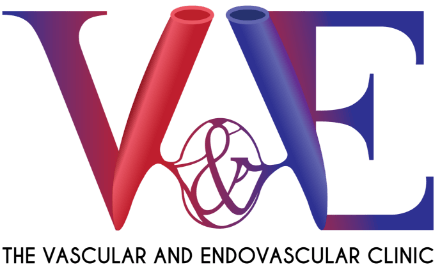What Are Varicose Veins?
Varicose veins are abnormal dilated bulging veins in the body. This occurs in the legs as a result of the normal veins losing their functional valves. Normal veins have valves to prevent the backflow of blood from gravity. The valves help the blood to move upwards towards the heart. However, when the valves fail, the blood flows downwards and the backpressure helps to dilate the veins and give rise to varicosities and varicose veins.
Symptoms of varicose veins?
The symptoms of varicose veins can be very mild to start with. This can be a heaviness in one or both legs at the end of the day after work.
This can be followed by direct pain over the varicose veins, especially when there is inflammation inside the varicosities. This is commonly known as thrombophlebitis.
Varicose veins also cause night cramps in advanced cases.
Other symptoms include itchiness when skin problems start to occur, as well as skin discoloration in the ankle region.
Sometimes when the veins are dilated, bleeding can happen when the veins rupture.
What are the leading causes of varicose veins?
Varicose veins are normally related to jobs that require prolonged standing. These occupations include nurses, doctors, teachers, sales representatives, chefs, soldiers, policemen, postmen and shopkeepers.
In fact, anything which increases abdominal pressure will also increase the risk of developing varicose veins. This can happen during pregnancy and also in people who suffer from constipation.
Prolonged standing and the continued use of abdominal pressure can have serious repercussions, leading to the development of varicose veins. Over an extended period of time, this increased pressure weakens the valves inside the veins and causes them to give way, resulting in the development of varicose veins.
Several Varicose Veins treatment options:
Looking for effective varicose veins treatment? Our team of experienced vascular specialists can help develop a personalized plan to address your specific needs and help you achieve the results you desire.
Varicose veins are traditionally treated by an open surgery method, where the affected veins are stripped and tied off to prevent further symptoms.
In the last 15 years, a lot of keyhole methods (endovenous treatment) have been developed with advancing technology. There are two broad categories; Thermal & Non-thermal means.
Thermal methods
Thermal methods use heat waves to burn down the veins from the inside.
A very small catheter containing either laser/ radiofrequency wave/ microwave probe is inserted inside the varicose vein. The heat energy is then transmitted onto the vein to cause it to close off completely. The whole procedure is monitored through the use of ultrasound scanning.
Non-thermal methods
Non-thermal methods use chemical agents to cause the veins to block off naturally. This can be done using foam sclerotherapy, Clarivein and Venaseal glue. Each of these works in a slightly different manner, but the principle is the same.A very small catheter is inserted through ultrasound guidance into the inside of the vein. Then chemicals are injected inside the vein and the vein will close off instantly. The advantage of chemical methods is the patient has much less pain and can recover way faster.
What happens if I leave varicose veins untreated?
Varicose veins are classified into six stages. Varicose veins normally start off as spider veins (stage 1). Then the next stage will be proper varicose veins with bulging varicosities (stage 2). The following stage will then be varicose veins with the addition of leg swelling (stage 3). It takes several years to progress from each stage to the next.
After stage 3, the next three stages are points of no return. It means that once you reach skin changes like eczema or pigmentation (stage 4), no surgery can revert the changes. The final two stages are ulcers and non-healing ulcers. The management will then be very complex and patients will be required to see doctors for dressing and treatment regularly.
So, my advice is if you have varicose veins, seek treatment early and preferably before stage 4 diseases.









